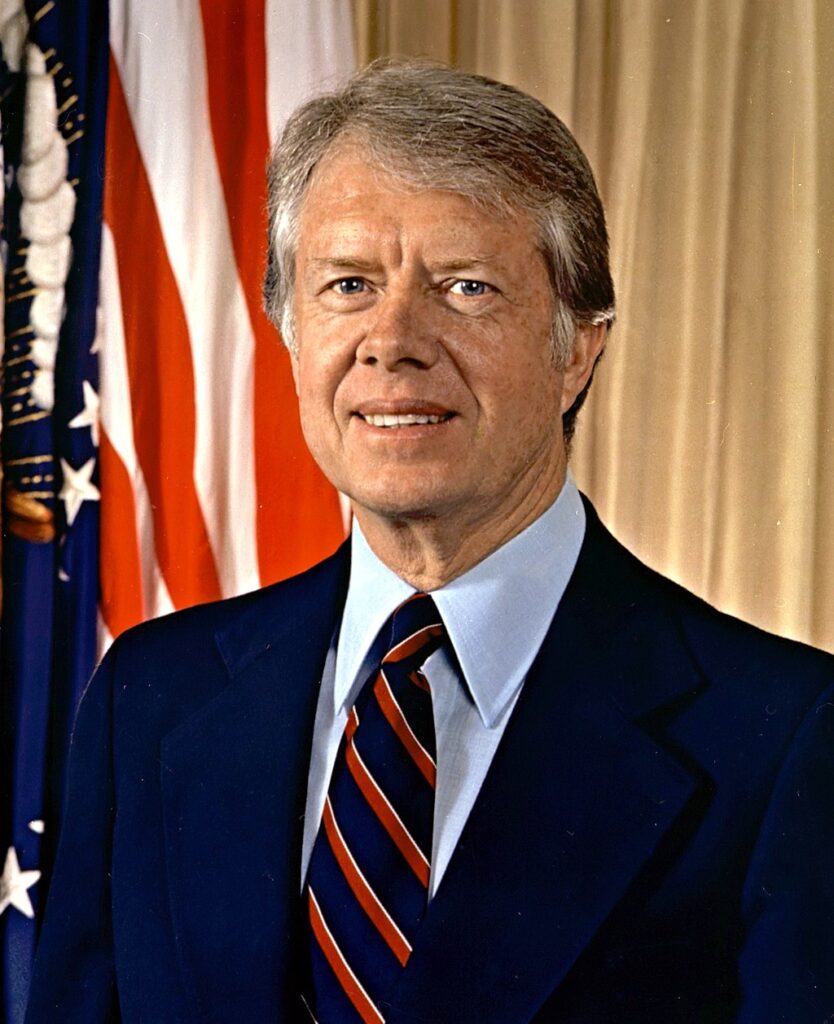c) Jimmy Carter
U.S. President Jimmy Carter was awarded the Nobel Peace Prize in 2002 for his diplomatic efforts both during and after his presidency. Carter’s work in various international peace negotiations, his efforts in human rights advocacy, and his role in founding the Carter Center were instrumental in his receipt of this prestigious award. His post-presidential career has been marked by a commitment to global humanitarian causes. This dedication included not just high-profile peacekeeping and diplomatic missions but also hands-on involvement in projects such as disease eradication and habitat building.
Carter’s influence extended beyond traditional diplomacy. He was deeply involved in conflict resolution in countries like Ethiopia, North Korea, and Haiti. His advocacy for human rights was not limited to speeches; he actively worked with leaders and organizations worldwide to bring attention to these issues. The Carter Center, established in 1982, became a beacon for international peace and health efforts. It played a crucial role in initiatives like the near-eradication of Guinea worm disease. Moreover, Carter’s unwavering commitment to Habitat for Humanity helped highlight the importance of affordable housing. His Nobel Peace Prize not only honored his past achievements but also underscored the ongoing impact of his work in bettering the world.

